
China
21:28, 27-Jul-2018
Malian doctor treats Chinese patients, will take TCM to Africa
Updated
21:04, 30-Jul-2018
By Feng Yilei
03:14
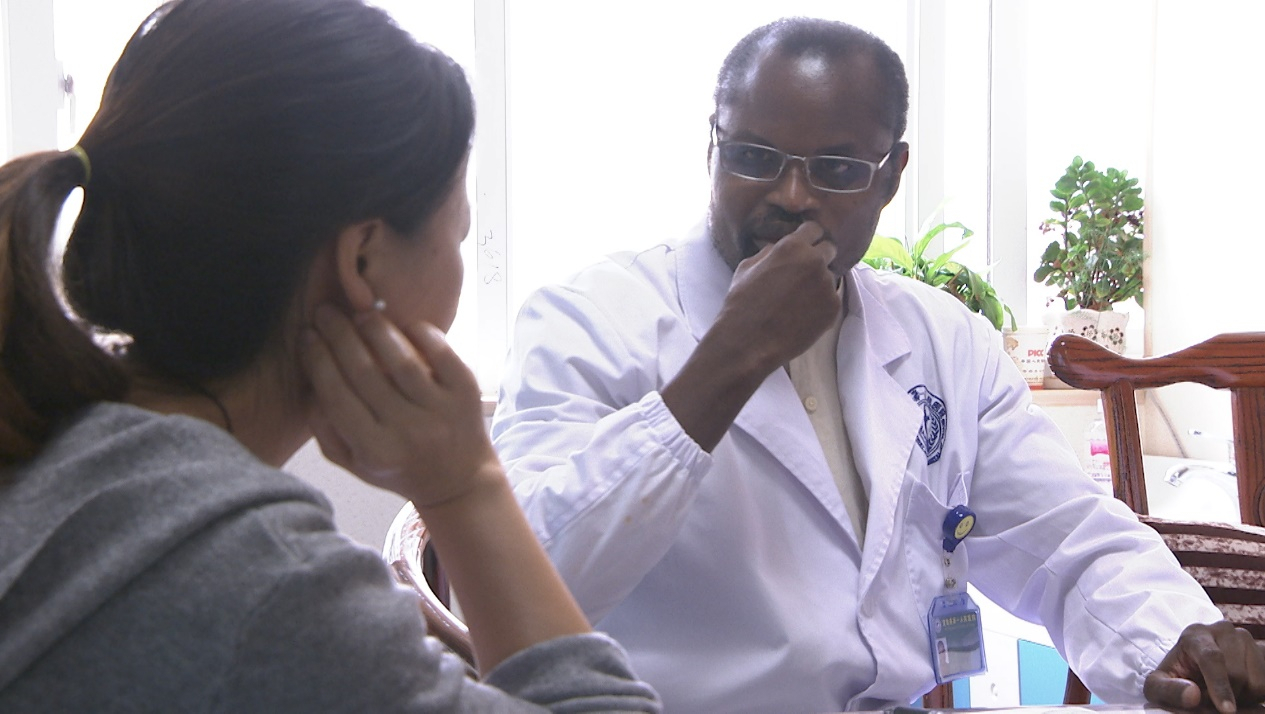
Malian doctor Diarra Boubacar has been practicing Traditional Chinese Medicine (TCM) for over three decades. In 1984, he came to China as an exchange student in Western medicine, but later developed an obsession with this medicinal system.
Learning TCM is never easy for a foreign beginner yet he overcame all the difficulties. For Boubacar, challenges arose trying to read literature written in ancient Chinese and to earn patients’ confidence.
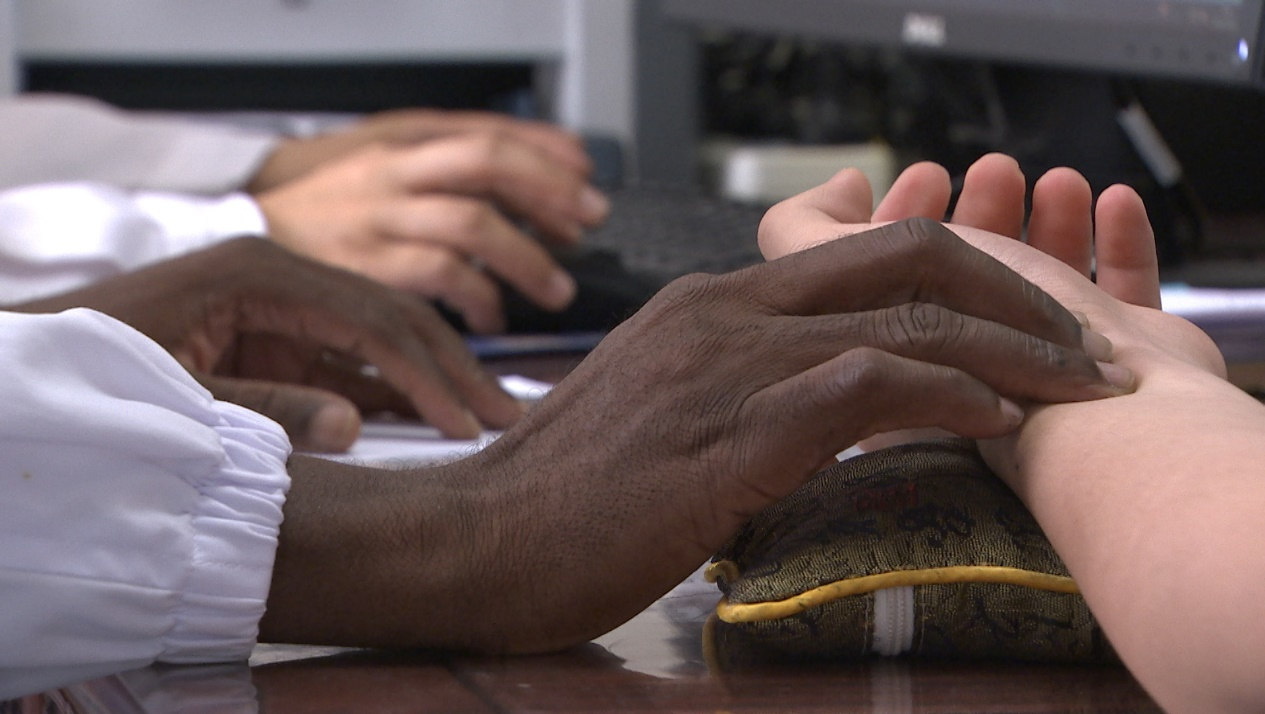
Diarra Boubacar takes the pulse of a patient. /CGTN Photo
Diarra Boubacar takes the pulse of a patient. /CGTN Photo
Boubacar went through the early trial and error period and became the first ever foreign post-doctoral TCM fellow in China. He wouldn’t have become the celebrity doctor he is today, without a strong nerve and a pair of sturdy legs. Now he speaks multiple Chinese dialects and also knows how to administer common Chinese therapeutic methods including cupping therapy, acupuncture and pulse feeling.
Diarra’s life journey took another turn in 1997 when he joined the organization – Doctors Without Borders – also known as the Medecins Sans Frontieres (MSF).
He could have gotten a higher-paying job in a big city or gone back to his father's hospital in Mali, yet he decided to help patients in remote villages in southern China. He said he found that barefoot doctors in remote areas don’t have enough medical knowledge and would like to do something for them.
Along with non-profit treatments for leprosy and AIDS, Boubacar has trained over 4,000 village doctors in southwest China. And he believes it is extremely important to promote TCM healthcare methods in rural areas that have a rich source of herbs, but not much Western medicine or modern tools.
“Chinese medicine comes from grassroots. It’s something from the community. It’s part of Chinese community life and it’s good to get it back among the community,” he said.
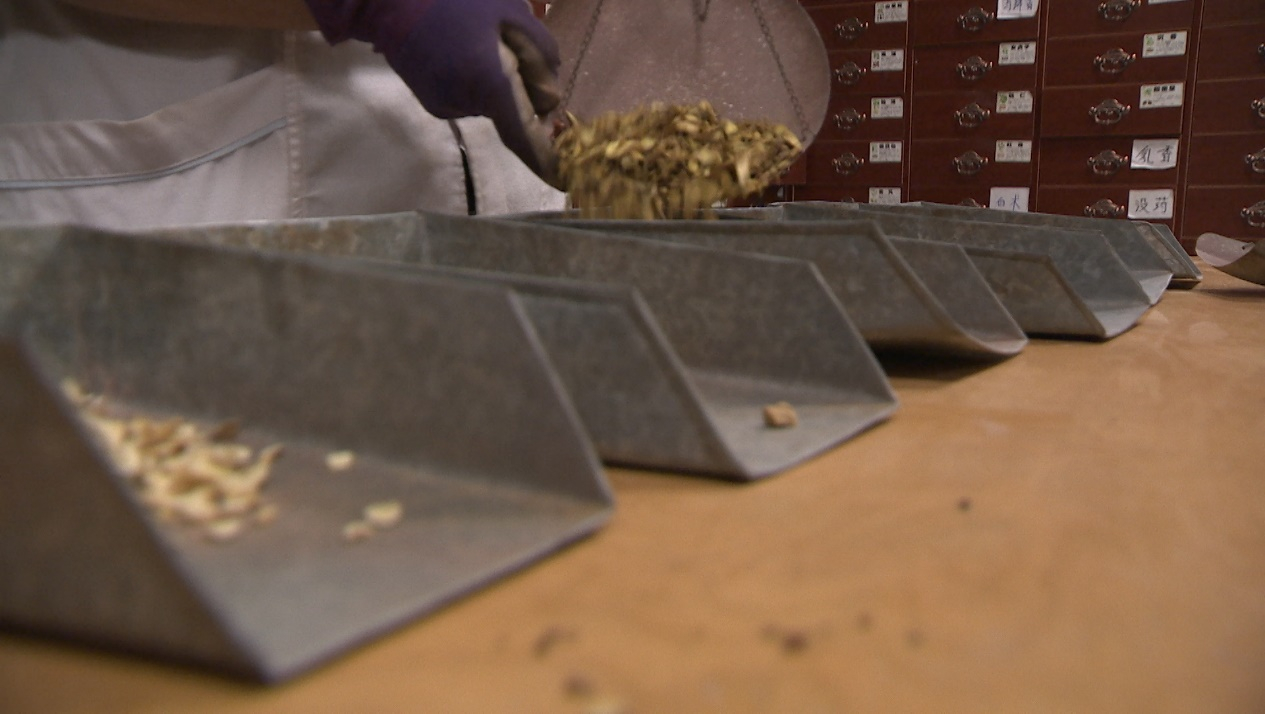
Chinese herbal medicine /CGTN Photo
Chinese herbal medicine /CGTN Photo
Efforts to strengthen medical services at the grassroots level also includes periodic exchange projects with smaller medical institutions. The visiting African physician has breathed new life into a once weak TCM department at Yiliang County Hospital in southwest China’s Yunnan Province.
While Diarra enjoys learning from his co-workers on how they practice the Chinese Hippocratic oath, local doctors feel the same about him.
Young TCM practitioner Liu Jiamei said Diarra used very simple words to explain complicated ideas, filling their knowledge gaps. Liu added that Boubacar did well in combining TCM with Western medical diagnoses and had brought new technologies – such as Fu Yang Guan, a revolutionary device for scraping therapy.
“We are motivated by his passion and devotion,” she concluded.
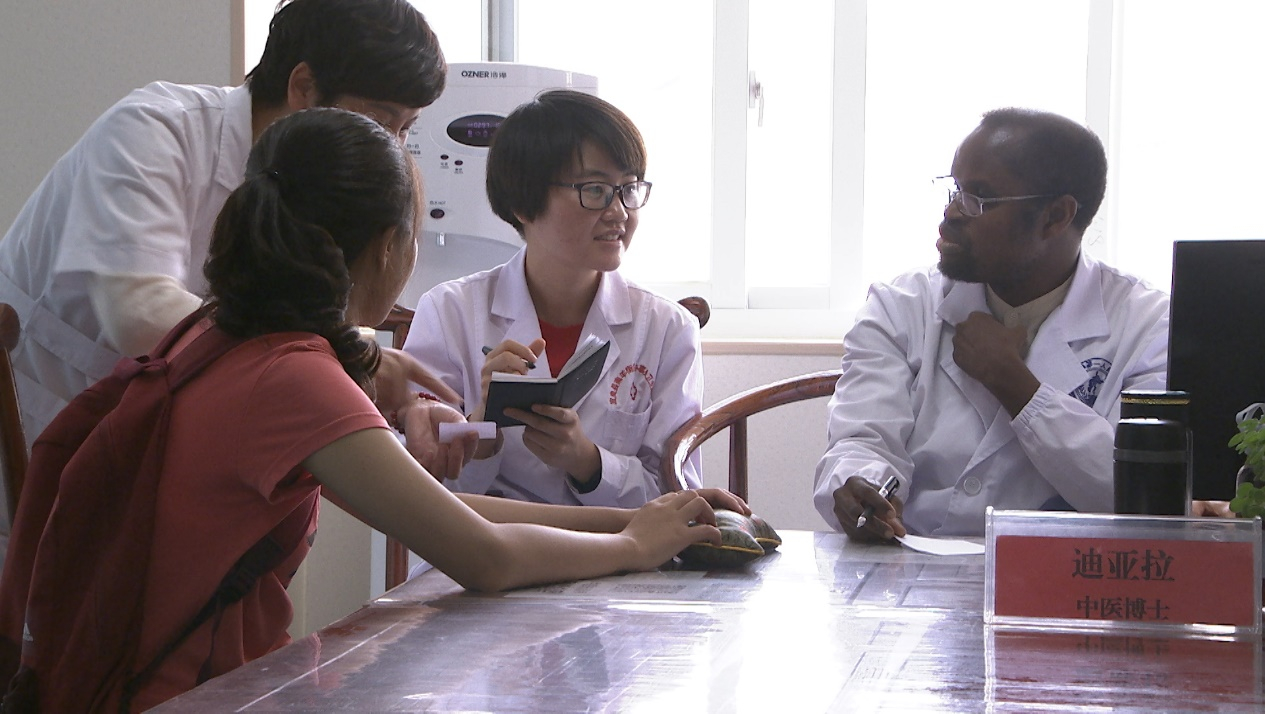
Diarra Boubacar works with TCM practitioners at Yiliang First People’s Hospital. /CGTN Photo
Diarra Boubacar works with TCM practitioners at Yiliang First People’s Hospital. /CGTN Photo
But when asked about why he didn't devote himself to underserved areas back home, Boubacar quoted a Chinese saying that "each thing has its time."
He said he felt it is the right time now to take TCM back to Africa with the Belt and Road Initiative in place and TCM gaining popularity worldwide.
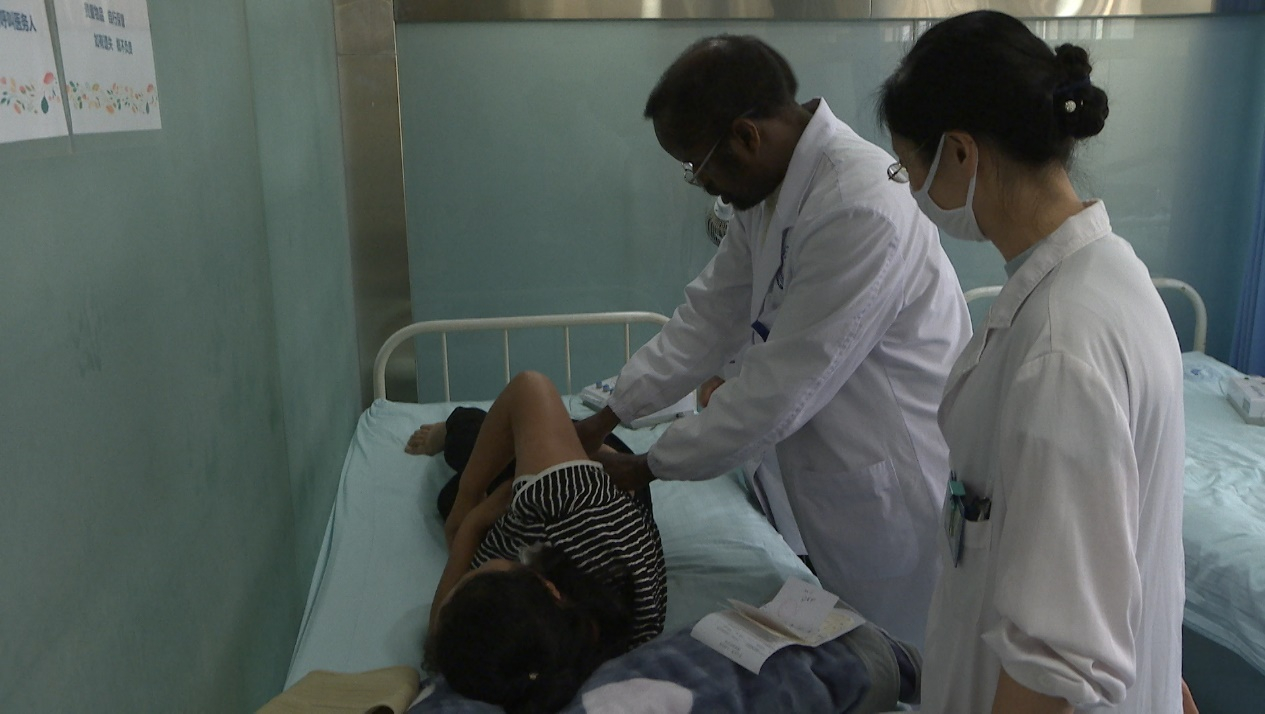
Diarra Boubacar examines a patient. /CGTN Photo
Diarra Boubacar examines a patient. /CGTN Photo
With over 6,000 herbal medicines in Africa, African folk healing remedies share lots of similarities with TCM, Boubacar said, that would allow him to utilize all his experience in China to carry forward the deeply-rooted culture in his homeland, training African physicians and doing charity work.
As Boubacar said, it’s no longer a matter of your village or my village. There’s no border in a global village.

SITEMAP
Copyright © 2018 CGTN. Beijing ICP prepared NO.16065310-3
Copyright © 2018 CGTN. Beijing ICP prepared NO.16065310-3